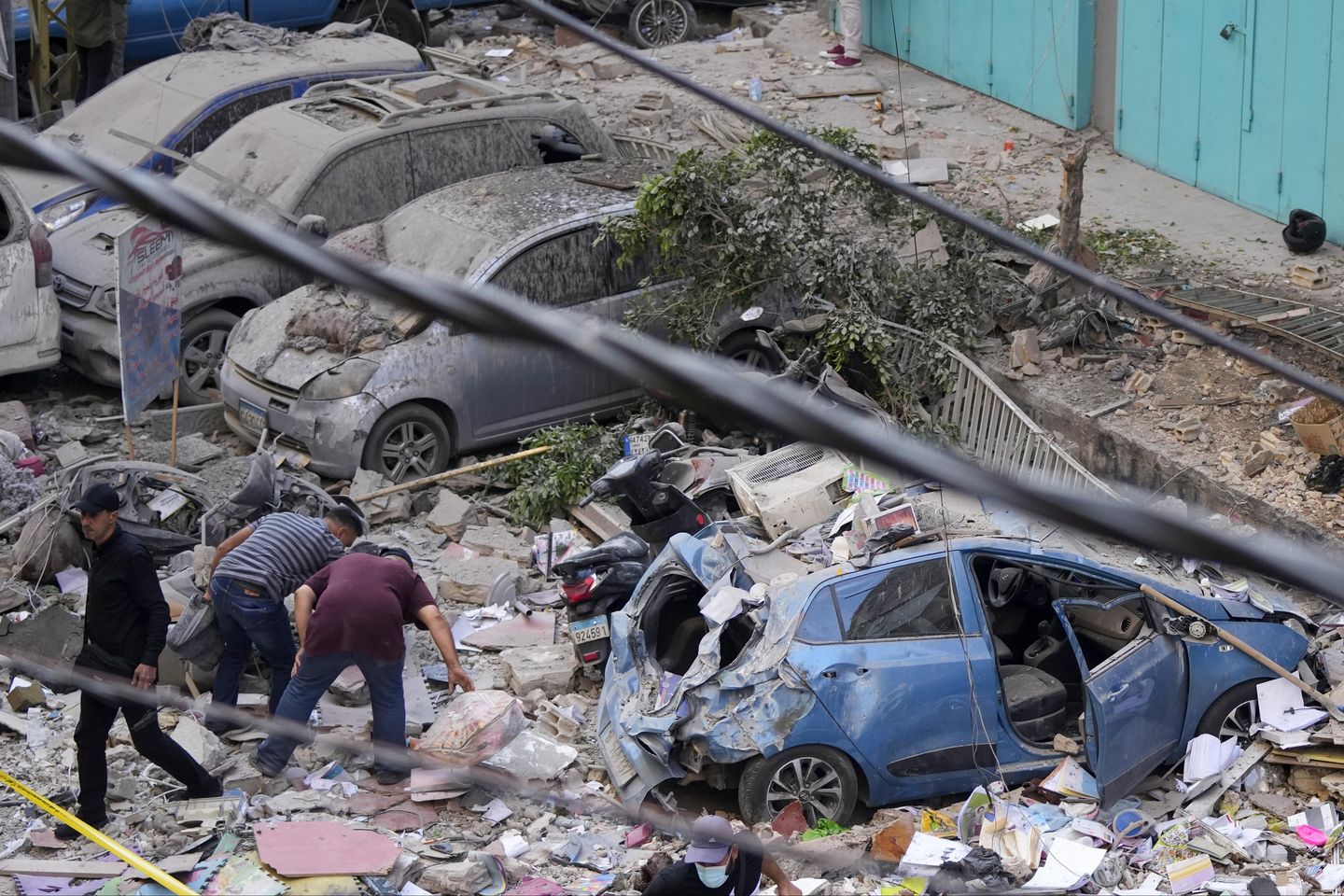Hezbollah, the Iran-backed militant group based in Lebanon, confirmed on Tuesday the death of one of its top commanders, Ibrahim Kobeisi. Kobeisi was killed in an Israeli strike in a southern Beirut suburb, marking a significant loss for the organization.
The Israeli strike targeted a building in the Dahiyeh neighborhood of Beirut, a stronghold of Hezbollah. The attack resulted in the death of Kobeisi, who was a high-ranking member of the group and played a key role in its military operations.
Hezbollah released a statement mourning the loss of Kobeisi and vowing to retaliate against Israel for his death. The group described Kobeisi as a martyr who had dedicated his life to the resistance against Israel.
Kobeisi’s death comes at a time of heightened tensions between Hezbollah and Israel. The two sides have been engaged in a long-standing conflict, with periodic flare-ups of violence along the Israel-Lebanon border.
The Israeli government has not officially commented on the strike that killed Kobeisi. However, Israeli officials have previously expressed concerns about Hezbollah’s growing influence in Lebanon and its support for the Syrian regime of Bashar al-Assad.
Hezbollah, which is considered a terrorist organization by the United States and several other countries, has been actively involved in the Syrian civil war, fighting alongside Assad’s forces against rebel groups.
The group’s involvement in Syria has further strained its relations with Israel, which views Hezbollah as a direct threat to its security. Israel has launched several airstrikes against Hezbollah targets in Syria in recent years, in an effort to prevent the group from obtaining advanced weapons and strengthening its military capabilities.
Kobeisi’s death is likely to escalate tensions between Hezbollah and Israel, raising concerns about the possibility of a wider conflict in the region. Both sides have warned of the potential for a new war, with Hezbollah threatening to retaliate against any Israeli aggression.
The death of Kobeisi is seen as a significant blow to Hezbollah, which has lost several key commanders in recent years. The group has been facing internal divisions and external pressure, as it struggles to maintain its military capabilities and political influence in Lebanon.
Hezbollah was founded in the early 1980s as a resistance movement against the Israeli occupation of Lebanon. Since then, it has evolved into a powerful political and military force, with strong ties to Iran and Syria.
The group has been accused of carrying out terrorist attacks against Israeli and Western targets, as well as engaging in illicit activities such as drug trafficking and money laundering. However, Hezbollah also enjoys significant support among Lebanon’s Shia Muslim population, who see it as a defender of their rights and interests.
Hezbollah’s involvement in the Syrian civil war has further complicated its relations with other countries in the region, including Saudi Arabia and the Gulf states. These countries have accused Hezbollah of destabilizing the region and supporting terrorist groups such as Hamas and Islamic Jihad.
The death of Ibrahim Kobeisi is likely to have far-reaching implications for Hezbollah and its future direction. The group will need to regroup and reorganize in the wake of his loss, while also preparing for possible retaliation from Israel.
In recent years, Hezbollah has been facing growing challenges both internally and externally. The group’s military involvement in Syria has stretched its resources and manpower, while its political influence in Lebanon has been eroded by widespread corruption and economic problems.
Hezbollah’s leadership will need to navigate these challenges carefully, as it seeks to maintain its position as a dominant force in Lebanese politics and society. The death of Ibrahim Kobeisi will undoubtedly be a setback for the group, but it remains to be seen how Hezbollah will respond to this latest blow.
In the meantime, tensions between Hezbollah and Israel are likely to remain high, with the potential for further violence and instability in the region. Both sides have been engaged in a dangerous game of brinkmanship, with the risk of a new conflict always looming on the horizon.
The international community has called for restraint and dialogue to resolve the longstanding conflict between Hezbollah and Israel. However, the deep-seated animosity and mistrust between the two sides make any peaceful resolution difficult to achieve.
As the situation in the Middle East continues to evolve, the death of Ibrahim Kobeisi serves as a stark reminder of the ongoing tensions and conflicts that plague the region. The loss of a key Hezbollah commander is a tragic event that will have lasting repercussions for both Lebanon and the wider Middle East.









